|
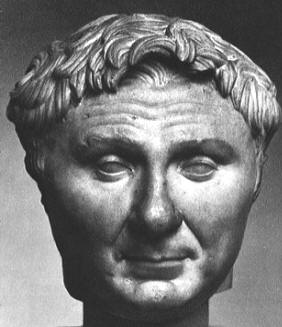
Pompey the Great 106-48 BC
People affectionately called him
Gnaeus Pompeius Magnus. Magnus meaning the great. The ones
who didn't died fast.
In a nutshell, Pompey was born in Rome,
very rich, and died in
Egypt.
He was a successful military leader and a bit controversial
at the time because he kept executing high ranking enemy soldiers
after they had surrendered.
Pompey was a member of the
 First Triumvirate. He was not very fond of
First Triumvirate. He was not very fond of
 Marcus Licinius Crassus,
but together with Crassus he was elected consul. Marcus Licinius Crassus,
but together with Crassus he was elected consul.
Pompey reorganized Asia Minor in 63 BC
and this is the map:

Asia Minor
in 63 BC
Click to enlarge
Roman Civil War 49-45 BC
Originally in alliance with
 Julius Caesar, Pompey and Caesar fought against each other
in the
Julius Caesar, Pompey and Caesar fought against each other
in the
 Roman
Civil War.
Roman
Civil War.
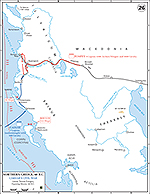
Roman Civil War: Opening Moves 48 BC
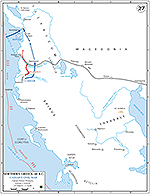
48 BC - March 27- April 3 - Roman Civil War:
Antony's Arrival
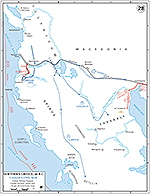
Roman Civil War: Scipio's Arrival 48 BC
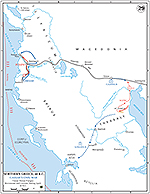
Roman Civil War: Movements During April 48 BC
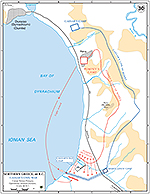
Roman Civil War: Operations Around Durazzo -
July 6, 48 BC
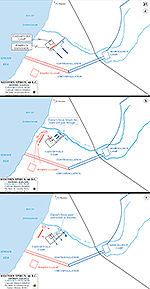
Roman Civil War: Battle of Dyrrachium - July
9, 48 BC
For Pompey, the decisive battle was the
 Battle of
Pharsalus on August 9, 48 BC.
Battle of
Pharsalus on August 9, 48 BC.
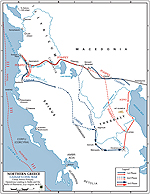
48 BC Roman Civil War: Moves to Pharsalus

48 BC Battle of Pharsalus
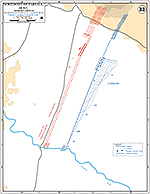
Roman Civil War: Battle of Pharsalus
August 9, 48 BC - Caesar Creates a Fourth Line
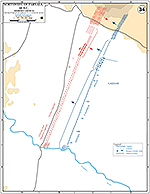
Roman Civil War: Battle of Pharsalus
August 9, 48 BC - Initial Advances
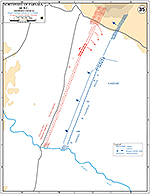
Roman Civil War: Battle of Pharsalus
August 9, 48 BC - Pompey's Cavalry Breaks Through
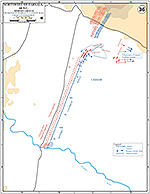
Roman Civil War: Battle of Pharsalus
August 9, 48 BC - Caesar's Counter-Attack
POMPEY'S
FAMILY
Pompey's father was Pompeius Strabo, a consul. Pompey had
several wives, among them were the stepdaughter of
General Lucius Sulla and
 Julius
Caesar's daughter Julia, who died in 54 BC.
Julius
Caesar's daughter Julia, who died in 54 BC.
More History
|